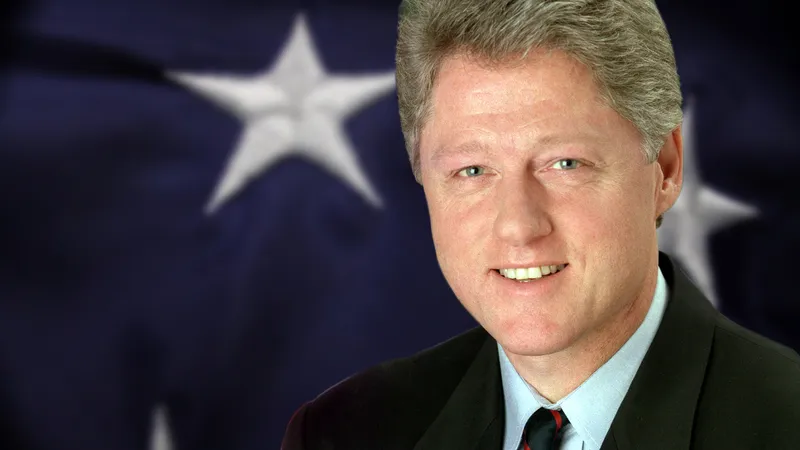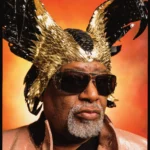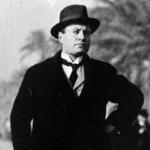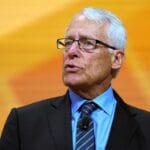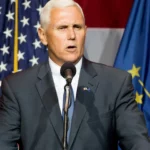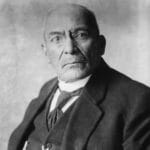Ever wonder about the 42nd President of the United States, Bill Clinton? Get ready to dive into his life with mind-blowing facts! From his small-town roots in Hope, Arkansas, to his rise to the White House, we’ll unveil the secrets, the triumphs, and the controversies that shaped this iconic American leader. Get ready for a captivating journey that will leave you with a new understanding of Bill Clinton, the man, and his unforgettable legacy.
Bill Clinton: A Look at His Life and Legacy
Let’s dive into the life and times of one of America’s most intriguing presidents, Bill Clinton. From his small-town roots to the Oval Office, his journey is packed with highs, lows, and everything in-between.
The Making of a President: Clinton’s Early Years
Born William Jefferson Blythe III in 1946, Bill Clinton’s story began in the humble town of Hope, Arkansas. It seems like destiny had big plans for this small-town boy. Not only did he excel academically, but he also had a knack for leadership, becoming class president at Georgetown University. He even snagged a prestigious Rhodes Scholarship, a sure sign of his ambition and intellect.
The Vietnam War was raging during this time, and protests filled the streets. Senator J. William Fulbright, a vocal critic of the war, deeply influenced Clinton’s own views. This period likely solidified his passion for politics and public service.
From Arkansas Governor to the White House
Think of a young, charismatic politician connecting with everyday folks – that was Bill Clinton in Arkansas. He became their governor in 1978, and even though he lost a re-election bid, he bounced back with a vengeance in 1982, earning the nickname “The Comeback Kid.” This resilience would define his political career.
In 1992, America was ready for a change, and Clinton answered the call. He ran for president, promising hope and a brighter future. The American people listened, electing him as the 42nd President of the United States.
The Clinton Presidency: A Time of Prosperity and Scandal
Clinton’s presidency was a time of peace and prosperity. The economy thrived under his watch, experiencing the longest peacetime expansion in U.S. history. He championed free trade with NAFTA and signed the Family and Medical Leave Act, granting workers much-needed family leave. These achievements painted him as a president who cared about both economic growth and social justice.
However, no presidency is without its share of drama. Clinton faced impeachment charges in 1998 related to the Monica Lewinsky scandal, a controversy that shook the nation. Despite the intense scrutiny and political turmoil, he was acquitted by the Senate and finished his term with remarkably high approval ratings.
A Complicated Legacy: Clinton’s Impact on America
Bill Clinton remains a complex figure in American history. He’s praised for his undeniable charisma, political savvy, and ability to connect with people from all walks of life. He was a gifted orator, able to move audiences with his words and inspire hope. Some even whisper about him being a “natural” politician.
Yet, the shadow of scandal, particularly the Lewinsky affair, continues to follow him. His critics point to this as a significant flaw, questioning his judgment and integrity. The debate about his legacy – balancing his achievements against his personal missteps – continues to this day.
Beyond Politics: Clinton’s Life After the White House
There’s more to Bill Clinton than just politics. He’s a talented musician, a saxophone prodigy who’s even jammed with jazz legends like Dizzy Gillespie. Imagine the president blowing his horn alongside one of the greats! And, of course, there’s his enduring partnership with Hillary Clinton, his wife and former Secretary of State. They remain a formidable duo on the world stage.
Today, Clinton continues to work on global issues as a UN Special Envoy for Refugees and Migrants. It’s clear that his dedication to public service extends far beyond his time in the White House.
Bill Clinton’s story is far from ordinary. He’s a fascinating mix of ambition, intellect, charm, and flaws. Whether you admire him or criticize him, there’s no denying that he’s left an indelible mark on American history. His life and presidency provide ample fodder for discussion and debate, ensuring that his story will continue to be told and analyzed for generations to come.
Clinton’s Defining Moments: What Shaped His Presidency?
Bill Clinton’s presidency, from 1993 to 2001, was a time of significant change and, let’s face it, some drama. While he’s celebrated by some for bringing about a booming economy and taking a more balanced approach to governing, others remember his time in office for the scandal that nearly ended his presidency. So, what exactly made Clinton’s time in the Oval Office so memorable?
One of the things people often remember about Clinton was the strong economy during his two terms. Imagine the longest period of economic growth without a war happening – that’s what it was like! He signed into law things like NAFTA, which changed how we traded with Mexico and Canada, and the Family and Medical Leave Act, which allowed folks to take unpaid time off work to care for family without losing their jobs – things many people still discuss the impact of today.
But it wasn’t just the economy; Clinton wanted to shake things up in other ways too. He appointed more women and minorities to important government positions than any president before him, which was a big deal. He also tried to tackle healthcare reform – remember “Hillary Clinton’s healthcare plan”? It was a huge goal, even though it didn’t work out as planned at the time.
On the world stage, Clinton wasn’t afraid to get involved. He intervened in the Balkans conflict and pushed for peace in the Middle East, even getting Israel and the PLO to agree to the Oslo Accords – a really big deal at the time.
Of course, no conversation about Clinton is complete without mentioning the elephant in the room – the scandal. His affair with Monica Lewinsky, a White House intern, led to him becoming only the second president in U.S. history to be impeached by the House of Representatives. The charges? Perjury and obstruction of justice, basically about lying under oath and trying to cover it up. In the end, the Senate acquitted him, so he didn’t get removed from office. However, this whole ordeal definitely left a mark on his presidency.
So, when we look back at Bill Clinton, we see someone who achieved a lot but also faced some major challenges. Was he a great president? Well, that’s still debated today. Some people think he was a charming and effective leader who brought peace and prosperity. Others aren’t so sure, pointing to the scandal and questioning some of his decisions. One thing’s for certain, though: Clinton’s presidency was anything but boring and continues to be a subject of discussion and differing opinions.
A Young President Takes Office: How Old Was Bill Clinton?
Bill Clinton, sworn in as President in 1992, was only 46 years old at the time. This made him the third youngest person to ever hold the office of President of the United States. It’s interesting to note that despite his relatively young age, Clinton already had a wealth of political experience under his belt. Before becoming President, he served as the governor of Arkansas for a total of 12 years. That’s quite a long time in politics, and it likely played a big part in his presidential victory. A lot of younger voters really connected with Clinton, seeing in him a reflection of themselves and their aspirations.
Born in the small town of Hope, Arkansas in 1946, Clinton’s journey to the White House was shaped early on by his political ambitions. He was particularly inspired by President John F. Kennedy, and he went on to study at prestigious institutions like Georgetown University and Yale Law School. After his studies, he taught law for a while before diving headfirst into the world of Arkansas state politics.
His political career saw him first elected as Arkansas Attorney General in 1976. Just a couple of years later, in 1978, he became the country’s youngest governor at the age of 32. He served five terms in that role, though it wasn’t always smooth sailing. He faced a tough re-election battle in 1980 but ultimately lost. However, he bounced back and won again in 1982 and continued his winning streak in the following elections of 1984, 1986, and 1990.
Clinton’s presidential campaign centered around the themes of economic progress and social liberalism. He positioned himself as a “New Democrat,” which resonated with many voters. In a significant victory, he defeated the incumbent President George H.W. Bush in the 1992 election.
His time in office wasn’t without its challenges. The Lewinsky scandal, a highly publicized controversy, cast a shadow over his presidency and ultimately led to his impeachment by the House of Representatives in 1998. However, he was later acquitted by the Senate in 1999.
Even after leaving the White House, Clinton remained a prominent figure in public life. He founded the Clinton Foundation and actively supported his wife, Hillary Clinton, in her own presidential campaigns. Clinton’s legacy is complex, marked by both remarkable successes and personal shortcomings.
The Road to the White House: Where Did Bill Clinton Go to College?
Bill Clinton’s path to becoming the 42nd President of the United States was paved with some pretty impressive schooling. Instead of just focusing on law or politics, he built a well-rounded education for himself – kind of like he was putting together a puzzle one piece at a time. Let’s take a look, shall we?
His journey started in the small town of Hope, Arkansas. Growing up, he lived with his mother and grandparents and attended Hot Springs High School. It was clear early on that Clinton was a bright spark, excelling in his studies and showing a real thirst for knowledge.
This led him to Georgetown University in Washington, D.C. – a pretty big deal for a boy from Arkansas! He dove headfirst into the world of international affairs, a subject that would become a cornerstone of his presidency. But Clinton wasn’t just hitting the books at Georgetown; he threw himself into student government and even snagged an internship with Senator J. William Fulbright, getting a taste of the political world.
Remember that Rhodes Scholarship we mentioned? Well, Clinton snagged one of those prestigious awards, which earned him a ticket to study at Oxford University in England. Can you imagine, studying amongst the dreaming spires of Oxford? At Oxford, he continued to soak up everything he could about international relations – knowledge that would later shape his approach to foreign policy.
After Oxford, it was off to Yale Law School, one of the most respected law schools in the world. Clinton’s time at Yale sharpened his legal mind, eventually earning him a Juris Doctor (J.D.) degree – a pretty important piece of paper if you’re thinking about a career in politics (or law, for that matter).
But Clinton wasn’t done with the academic world just yet. Before throwing his hat into the political ring, he spent some time sharing his knowledge as a law professor at the University of Arkansas School of Law. Talk about giving back!
Looking back, it’s clear that Bill Clinton’s educational experiences weren’t just about collecting degrees. They represent a deliberate journey of learning and growth that ultimately shaped his worldview and prepared him for the challenges of leading a nation.
“Slick Willy” and More: Unpacking Bill Clinton’s Nicknames
Now, when it comes to Bill Clinton, the 42nd President of the United States, the nickname that probably pops into most people’s minds is “Slick Willie“. This moniker, coined by an Arkansas columnist named Paul Greenberg back in 1980, really stuck. Some experts believe this was because it seemed to perfectly capture Clinton’s knack for navigating the political landscape and his undeniable charisma. He had this way about him, a certain charm, that people couldn’t help but notice.
But that’s not the only nickname attached to Clinton. He was also often called “Bubba“, a nickname that really played up his Southern roots and that down-to-earth, relatable vibe he gave off. It made him seem more like one of the guys, you know?
Then there’s “The Comeback Kid“, a nickname he earned during the 1992 presidential primaries. This one highlights his incredible resilience. He faced some serious setbacks early on but bounced back stronger than ever. It really resonated with voters, showing them he could handle whatever challenges came his way.
What’s interesting about nicknames, especially in politics, is that they can really shape the way people see a public figure. They offer a glimpse into how someone is perceived, whether it’s their personality, their strengths, or even their weaknesses. In Clinton’s case, his nicknames tell a story of political savvy, Southern charm, and an almost uncanny ability to connect with people.
Uncover facts about Katherine Johnson, a mathematical genius who defied societal norms and made significant contributions to space exploration. Explore the fascinating facts about Robert Brown, a botanist who discovered the movement of particles in liquids, known as Brownian motion. Delve into the captivating facts about John Nash, a Nobel Prize-winning mathematician whose life and struggles with mental illness inspired the film “A Beautiful Mind.”
